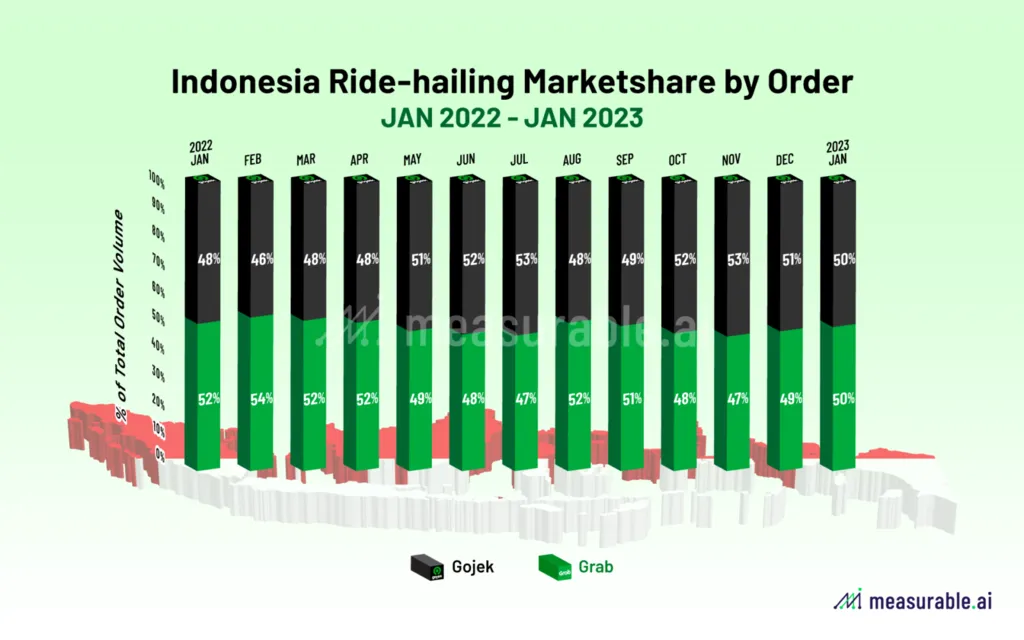Jakarta’s traffic congestion isn’t just frustrating, but also very expensive. The city loses up to US$3.89 billion every year from delays, fuel waste, and business inefficiencies. Nationally, congestion costs Indonesia as much as 5% of GDP. If left unchecked, this commuting crisis could grow 41% worse, draining over US$37 billion annually. But the tides are turning. Indonesia is embracing a new wave of urban mobility solutions and it’s reshaping how people move, live, and work in its cities. Let's take a closer look at Indonesia Urban Mobility Disruption below!
Shared Mobility: A Multi-Billion-Dollar Shift
The rise of ride-sharing, carpooling, and micro-mobility is more than a trend—it’s a transformation. The shared mobility market in Indonesia is projected to reach US$20.5 billion by 2025, a clear signal of widespread adoption.

This shift brings real-world benefits. In 33 major cities, shared mobility could cut urban air pollution by 8% and help preserve the equivalent of 415,000 hectares of forest. It also slashes commuting costs. Analysts estimate that full adoption of shared mobility could save IDR 138 trillion (roughly US$10 billion) in commuting expenses.
These services are even changing car culture. Among Uber users in Indonesia, 6% have stopped using personal cars, and 62% drive less frequently. This marks a clear shift from private ownership toward shared access—an essential move for easing congestion and pollution.
Smart Transit and Integrated Infrastructure
Indonesia’s capital is leading the way with smarter, more connected transit. Jakarta’s Transit Oriented Development (TOD) model integrates MRT, LRT, commuter rail (KRL), and bus rapid transit (Transjakarta). This approach makes switching between transit types faster and easier.
It’s working. In Jakarta, 20% of Uber users use the app in combination with public transport, embracing a multi-modal commuting culture. If scaled nationally, these combined trips could reach 8 billion annually, drastically improving urban mobility. Smart mobility systems are enhancing this experience. From smart ticketing and real-time tracking to data-driven traffic management, Indonesian cities are making public transport more reliable, efficient, and user-friendly.
Read Also: Indonesia Rural Digital Inclusion: A Quiet Revolution
Indonesia Urban Mobility Disruption: Urbanization Demands Innovation
Over 30 million more people are expected to move into Indonesian cities by 2030. Without major changes, cities will face deeper issues with traffic, pollution, and public health. With how severely traffic congestion already costs Jakarta every yearly, it's no wonder people are losing productivity. Solutions are emerging to tackle this problem.
Read Also: Indonesia Urban Renewal Initiatives: Innovation at Work
Urban mobility must evolve fast. Digital integration, shared services, and green transit infrastructure are essential. But the goal isn’t just efficiency, but future-proofing cities. For instance, Surabaya’s electric Transjakarta buses (targeting 100% electrification by 2030) show how green infrastructure can tackle both emissions and overcrowding. Without such innovation, Indonesian cities risk economic gridlock. And it’s not just about convenience, but sustainability and resilience.
A New Urban Reality with Indonesia Urban Mobility Disruption
Indonesia Urban Mobility Disruption is more than a response to traffic. It’s a strategic reinvention of how people and goods move through the nation's cities. With shared rides, smart transit hubs, and green infrastructure, cities like Jakarta are setting the tone for what’s possible. By reducing dependency on cars, slashing pollution, and reclaiming time and space, Indonesia is building urban systems for the future—cleaner, faster, and more inclusive. The transformation is well underway, and it’s redefining life in Indonesian cities, one smart move at a time.







